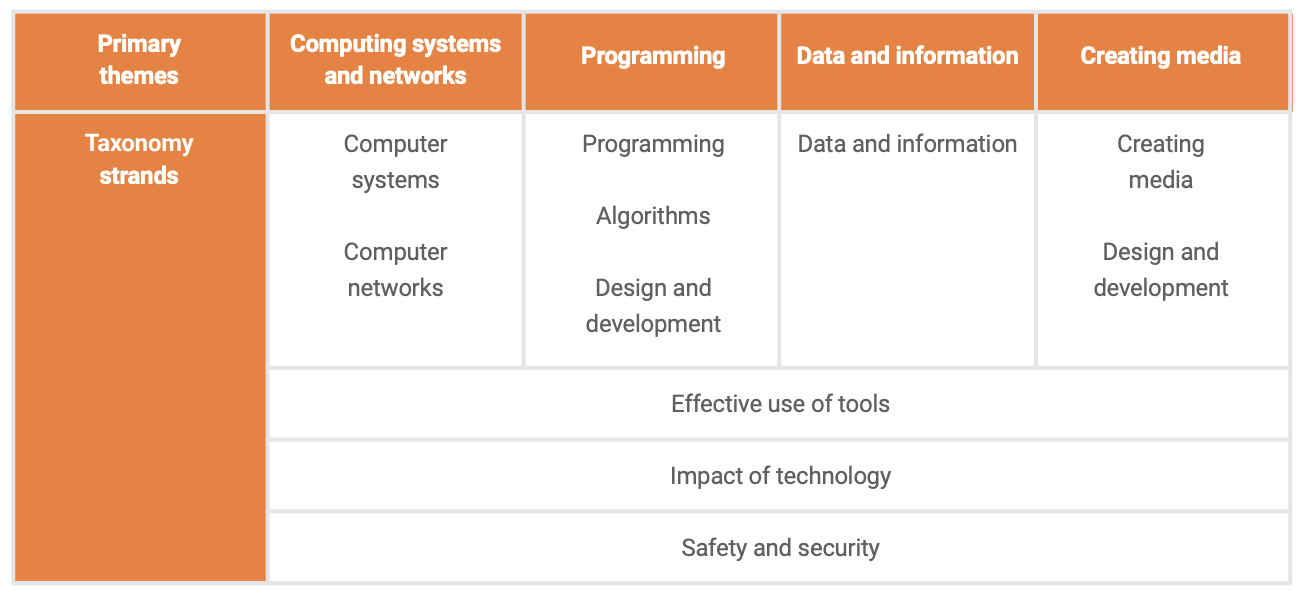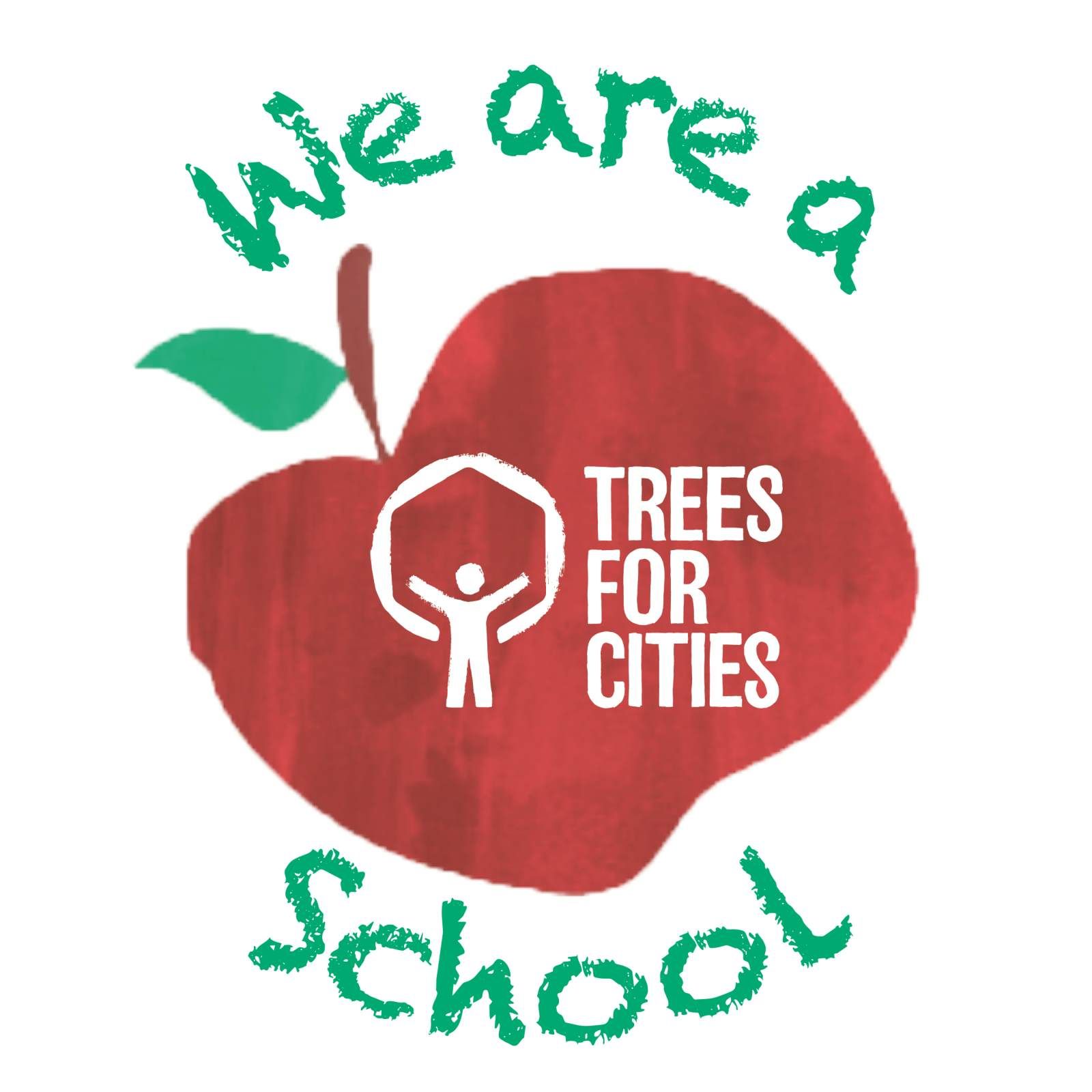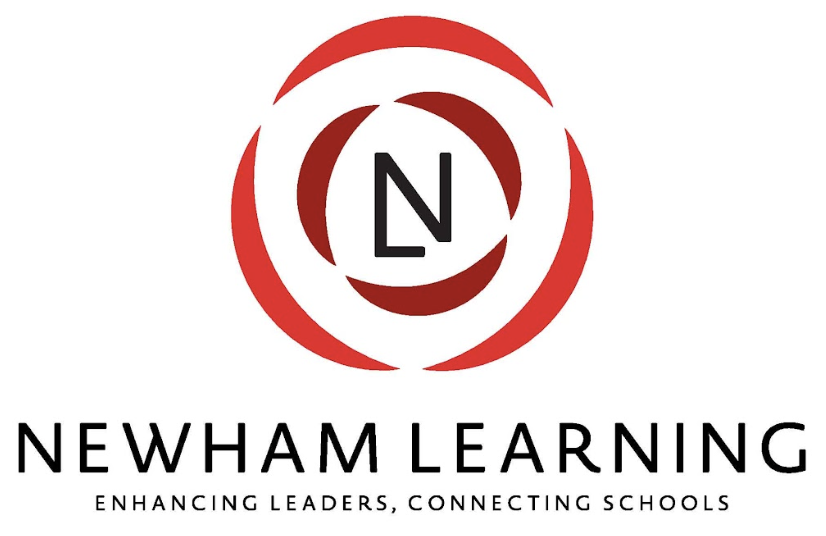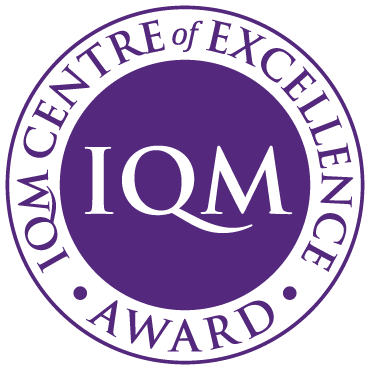Computing
At Plaistow our children are equipped with the knowledge and skills needed to approach the ever-changing modern world with the necessary resilience and aptitude for success.
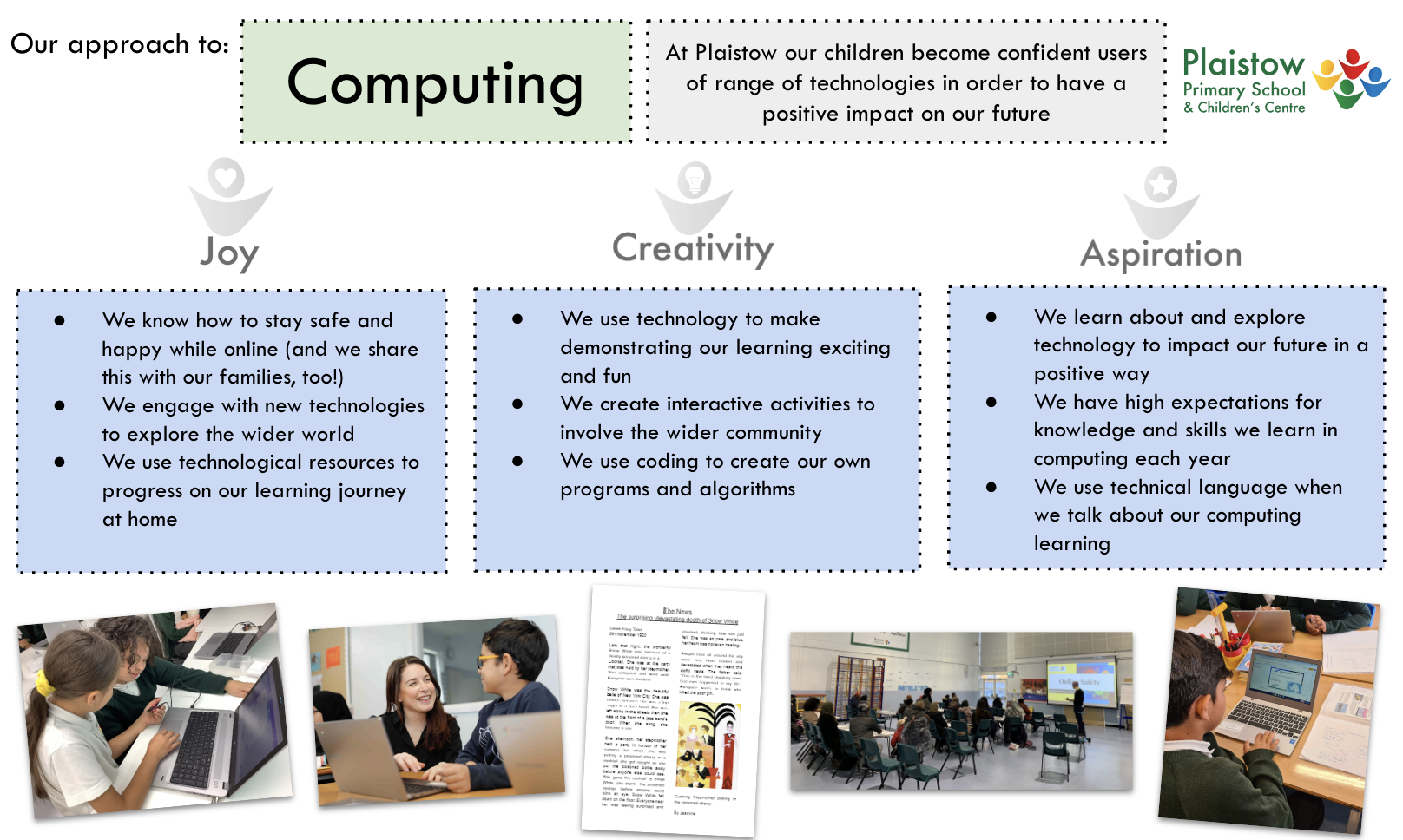
At Plaistow Primary, we have dedicated lessons to the teaching of Computing across the school, with our Early Years teams embedding it into their Learning and Development areas. Computing has deep links with PSHE, maths, science and design and technology. For example, a strong links to PSHE from the aspect of online safety, enables our pupils to experience areas of Computing from a holistic approach. This can also be seen in maths as the children are encouraged to look at processing, recording and evaluating data with a specific outcome using digital platforms.
We use a range of platforms to deliver our Computing curriculum. Our platforms allow our staff to deliver high quality lessons in which the progression of skills between the year groups and key stages are clear, and adaptable to year group needs and abilities. The national curriculum covers these areas for each key stage as the following.
In Key Stage One children are taught to:
- understand what algorithms are, how they are implemented as programs on digital devices, and that programs execute by following precise and unambiguous instructions
- create and debug simple programs
- use logical reasoning to predict the behaviour of simple programs
- use technology purposefully to create, organise, store, manipulate and retrieve digital content
- recognise common uses of information technology beyond school
- use technology safely and respectfully, keeping personal information private; identify where to go for help and support when they have concerns about content or contact on the internet or other online technologies
In Key Stage Two children are taught to:
- design, write and debug programs that accomplish specific goals, including controlling or simulating physical systems; solve problems by decomposing them into smaller parts
- use sequence, selection, and repetition in programs; work with variables and various forms of input and output
- use logical reasoning to explain how some simple algorithms work and to detect and correct errors in algorithms and programs
- understand computer networks, including the internet; how they can provide multiple services, such as the World Wide Web, and the opportunities they offer for communication and collaboration
- use search technologies effectively, appreciate how results are selected and ranked, and be discerning in evaluating digital content
- select, use and combine a variety of software (including internet services) on a range of digital devices to design and create a range of programs, systems and content that accomplish given goals, including collecting, analysing, evaluating and presenting data and information
- use technology safely, respectfully and responsibly; recognise acceptable/unacceptable behaviour; identify a range of ways to report concerns about content and contact
We teach computing using resources from the National Centre for Computing Education (NCCE) - funded by the Department for Education to improve the provision of computing education in England.
The NCCE's TeachComputing resources ensure that our children in Key Stage 1 and 2 learn computing systematically, in line with the National Curriculum.
Resources from the NCCE's Barefoot Computing provides our Early Years team with key objectives to teach computational thinking, to build early foundations.
Online Safety is embedded throughout each TeachComputing unit and taught explicitly in PSHE. We also celebrate an annual Online Safety Week using teaching resources linked to the UK Council for Internet Safety's (UKCIS) framework “Education for a Connected World”.
Curriculum Design
The units for key stages 1 and 2 are based on a spiral curriculum. This means that each of the themes is revisited regularly (at least once in each year group), and pupils revisit each theme through a new unit that consolidates and builds on prior learning within that theme. This style of curriculum design reduces the amount of knowledge lost through forgetting, as topics are revisited yearly. It also ensures that connections are made even if different teachers are teaching the units within a theme in consecutive years.
Within the Teach Computing Curriculum, every year group learns through units within the same four themes, which combine the ten strands of the National Centre for Computing Education’s taxonomy (see table below). This approach allows us to use the spiral curriculum approach to progress skills and concepts from one year group to the next.
